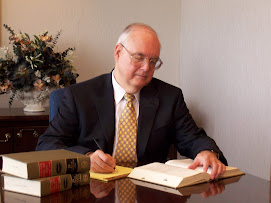A "Revocable Trust" is also called a "Living Trust" or a "Family Trust." Trusts are used in a similar way that people use a Last Will & Testament but a trust has a lot more bells and whistles. From here on, I will just call it a "trust".
Now, if you already know how trusts work, skip the long discussion below and just read the bullets underneath the following explanation. If you REALLY want some foundation on what a trust is, keep reading.
A trust is usually created by an agreement. The person that expresses his or her wishes in the agreement is called the grantor (or settlor). Usually this same person is the Trustee, a type of manager of trust affairs. And finally, all trusts must have a beneficiary, again very likely the same person. This person then puts all his or her assets into this trust. The grantor still has control over the trust assets, and the ability to change or terminate the trust at any time. Let me make it clear here that the person that sets up the trust and puts his or her assets into the trust almost always is the only beneficiary with complete control over the assets. Family members, other than a spouse or partner, are not in the picture at all until the person passes away.
Perhaps the most common reason to establish a revocable living trust is to avoid the expense and delay of probate. Furthermore, if someone becomes unable to take care of him or herself, the successor trustee appointed in the trust can step in a take care of the person for as long as needed. You don't get this with a will. Ultimately, when the person dies, the successor trustee passes the trust property to the children or other estate beneficiaries according to the grantor's objectives. As you can see, the trust, while intended to transfer assets easily upon our death, can be used to take care of us during times of physical or mental need.
Bullet points about a Revocable Trusts:
- A husband and wife can do a single trust to take care of both of them until the last one is gone.
- I am seeing a lot of parents setting up a trust to first take care of them, then take care of their children when they are gone. The days of just leaving the entire estate outright to the children is becoming less and less. We all hear the stories and understand what a bunch of money can do to young people. By holding it in trust long after the parent has died, the funds can be kept out of the hands of the child's creditors, divorcing spouses, and that child's own folly.
- It isn't an Irrevocable Trust or a Living Will. You may also need these but these are entirely different documents. I will talk about these at some later date.
- Trusts for pets? Yes, in Arizona.
- Asset Protection? None. If you put all your assets in your revocable trust, your creditors can get access to these assets as easily as they could if the assets are in your name. If you give your trust a name that is different than your last name, such as the Bill and Becky Trust, it will be a little harder for people to find out what you own. This is more of a privacy issue than asset protection.
- Tax benefits? Depends. Income tax benefits? Nope. Estate tax benefits? Yes, if you are subject to estate taxes, a husband and wife can do a few things to save on these taxes. Don't worry about this unless you are close to the tax threshold of $3.5 Million Dollars.
- Costs? Usually trusts are part of an estate plan that includes powers of attorney and other needed documents. The entire estate plan starts around $1,500 and goes up from there. An attorney can hear your situation and give you a better idea. If you pay less for your trust, all bets are off.

No comments:
Post a Comment